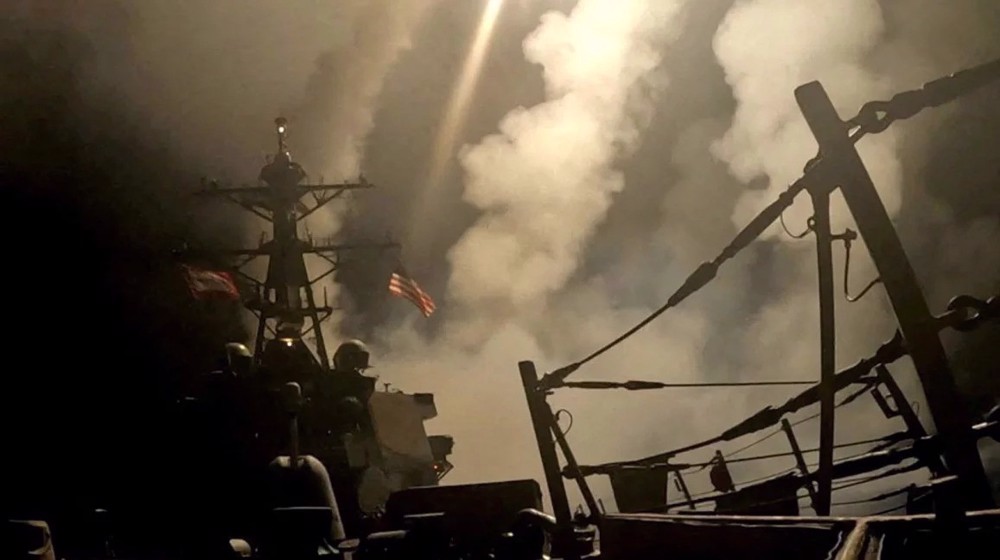Japan's military seeks record military budget to buy US arms
The Japanese military has sought a hike in its annual budget for the eighth consecutive year in a bid to fund purchase of US-built stealth jet fighters, interceptor missiles and other military hardware to face perceived threats from China and North Korea.
Tokyo’s defense ministry budget proposal -- unveiled on Friday – asked for an increased spending of 1.2 percent for the upcoming fiscal year beginning April 1, bringing the annual military expenditure to a record 5.32 trillion yen ($50.48 billion).
However, the country’s finance ministry authorities will examine the budget request before it is approved by the cabinet of Japanese Prime Minister Shinzo Abe.
Despite a constitution that forbids the possession of weapons to attack other countries, Japan has emerged as one of the world’s leading military spenders and increased military expenditure over the past seven years.
The development came just days after a US military agency approved the sale of anti-ballistic missiles to Japan at an estimated cost of $3.3 billion, justifying the move as a countermeasure to the “threat” of North Korea.
The US Defense Security Cooperation Agency made the announcement in a statement on Tuesday, saying Raytheon and BAE Systems were the prime contractors for the sale of up to 73 Standard Missile-3 and MK 29 Canisters to Japan.
“This proposed sale will support the foreign policy and national security of the United States by improving the security of a major ally that is a force for political stability and economic progress in the Asia-Pacific region,” the statement said.
Japan’s surging military spending -- much of it on advanced weapons from the United States -- has benefited major American weapons manufacturers such as Lockheed Martin and Raytheon.
It has raised concerns among the nation’s local contractors such as the Mitsubishi Heavy Industries, which have witnessed a declining share of the defense market.
US President Donald Trump has thanked Japan for purchasing the expensive American weaponry, which has been instrumental in curtailing criticism of Tokyo amid trade tensions between the two close allies.
Japanese military officials have asked for 115.6 billion yen to purchase nine Lockheed Martin F-35 stealth fighters -- for the first time including six short take-off and vertical landing (STOVL) B variants that it wants to operate from aircraft carriers -- for the next fiscal year.
The arms purchase deal is due to help Japan project military power by extending the range at which the country’s Self Defense Forces can operate.
Japan’s military establishment further desires funding of 116.3 billion yen to strengthen its ballistic missile defenses (BMD), including funds for a new generation of interceptor missiles designed by Raytheon.
It also wants money to purchase vertical launch systems for its warships and two planned ground-based Aegis Ashore radar missile tracking stations.
The report comes after foreign ministers of China, Japan, and South Korea vowed earlier this month to strengthen trilateral ties in a meeting on the outskirts of the Chinese capital Beijing.
Relations between Japan and South Korea have remained arguably at their lowest since 1965, exacerbated by a heated feud over the issue of South Korean forced labor during World War Two.
Foreign Ministers Kang Kyung-wha of South Korea, Taro Kono of Japan, and Wang Yi of China shook hands and posed for the media before sitting down for talks on August 21.
It was the ninth such trilateral meeting, the last having been held three years earlier.
In 2008, the three countries agreed to hold a summit every year to foster regional cooperation but bilateral tension, including between China and Japan, has become a detractor.

US spent $1 billion on Yemen offensive with limited results: Report

Yemen’s army thwarts two US attacks: Spokesman

US airstrikes target multiple sites across Yemen’s Sa’ada
Columbia University laid groundwork for my abduction: Detained student
US threats contradict its calls for diplomacy, Iran open to talks on ‘equal footing’: President
Hamas says 19,000 children killed in Gaza, calls for prosecution of Israeli leaders
Lebanon calls on US to stop Israeli strikes, ceasefire violations
VIDEO | Footage reveals aid workers killed in Gaza under Israeli fire, debunking regime’s claims
Autopsy finds teenage Palestinian died of starvation in Israeli prison
Year of Investment in Production in Iran
Israel’s brutality in Gaza ‘surpasses all recent forms of terrorism’: Rights group












 This makes it easy to access the Press TV website
This makes it easy to access the Press TV website